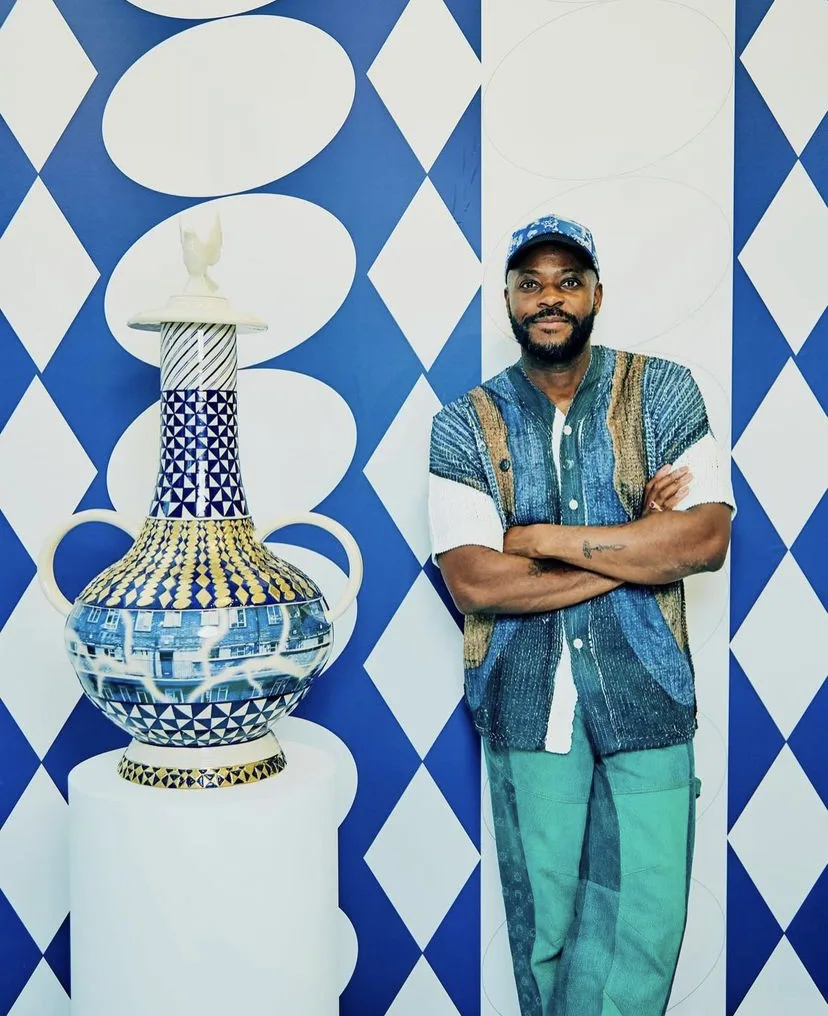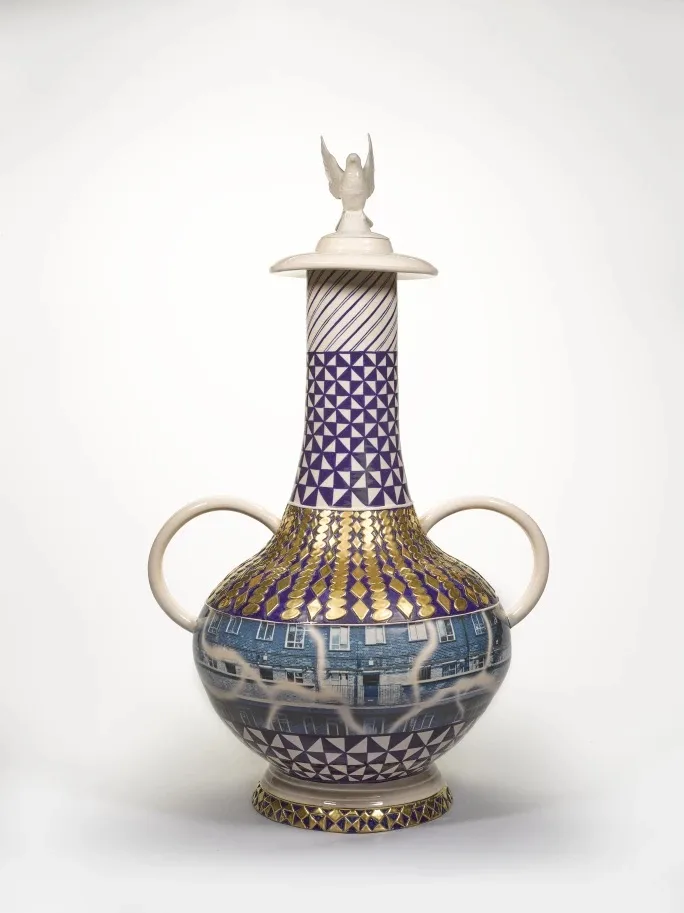A formidable presence in the contemporary art scene, Yinka Ilori crafts captivating works that provoke deep reflection while maintaining an irresistible allure. Born in 1987 and raised in Islington, North London, the Nigerian-British artist skillfully weaves elements of his dual heritage into his creations. His upbringing in a lively, multicultural environment has significantly influenced his artistic approach and work, seamlessly merging Nigerian and British cultural narratives.
Yinka Ilori’s Places That Build Their Dreams reinterprets the classic blue-and-white Wedgwood-style plates, symbols of status in Nigerian and Ghanaian households. Originally mass-produced by British manufacturers from the 18th century, these plates featured Chinese motifs like willow trees, pagodas, and birds, which Ilori felt was disconnected from African homes. Yinka Ilori’s redesign bridges this cultural gap, infusing the plates with a sense of belonging and deeper cultural relevance.

Displayed at Sotheby’s Story Café from September 2nd to October 31st, Places That Build Their Dreams serves as a powerful reflection on the immigrant journey, exploring themes of belonging and identity.
Created in collaboration with a Stoke-on-Trent-based ceramic company 1882 Ltd., the ceramic trophy features a bulbous form with two rounded handles and a slender neck, topped by a dove symbolizing peace. Its geometric patterns draw inspiration from Adire textiles, traditionally crafted by Yoruba women in southwestern Nigeria. Wrapping around the piece is a striking photograph of the Marquess Estate, Yinka Ilori’s childhood home, captured by Ed Reeve.

This intricate design encapsulates Ilori’s fusion of cultural narratives, delving into themes of identity, belonging, and resilience. The title Places That Build Their Dreams mirrors Ilori’s journey of growing up between two cultures, striving to create a sense of home and community. As Ilori remarks, “A trophy is something you want to hold up in the air, a sign of celebration and joy, acceptance, recognition, and pride.”
With this piece, Ilori invites viewers to reflect on the complexities of cultural heritage and the importance of representation.


